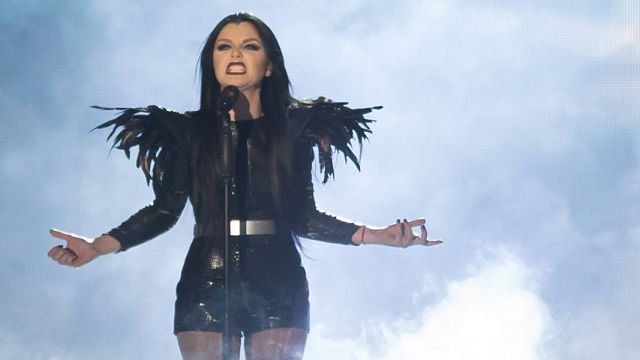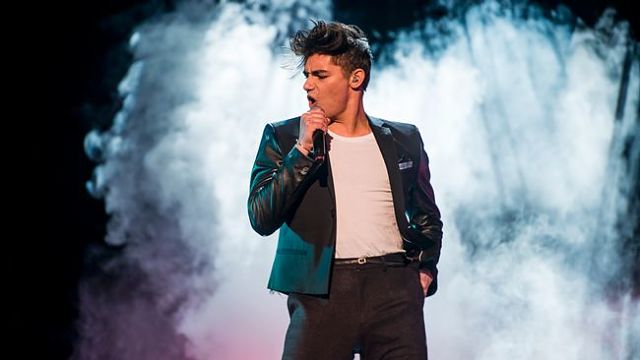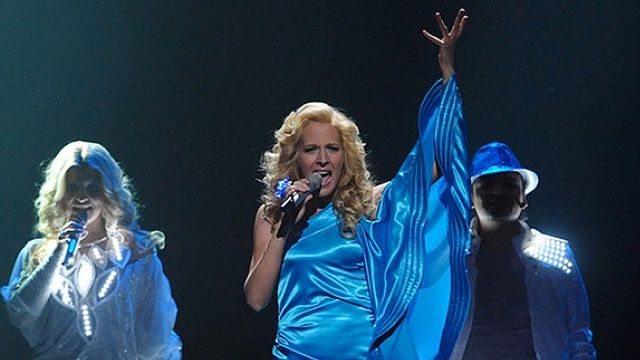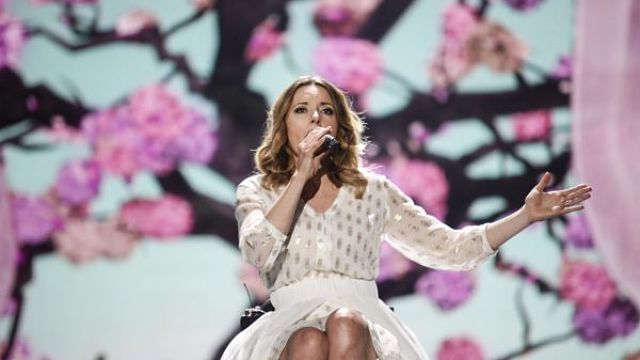The Eurovision Song Contest has involved juries in some format since 2008. That format has been tweaked this year, but the jury make up is still done in the same way as before. Each country selects five people who have to be ‘music industry professionals’ to sit on a panel representing their country. They will each have to vote on one Semi Final and the Grand Final performances from the jury shows, held the night before the actual show itself. Each jury member should place their favourite song in first place, second favourite in second place, and continue all the way down until last place. The results are then combined to make a 1-12 vote from the jury.
This year the voting changes mean the jury scores will be under even more scrutiny. Jury results are no longer combined with televoting, with televoting scores compiled at the end of the show together in a big lump sum. This means that the jury top 10 will be revealed individually on screen and presented live by their country’s spokesperson. Millions of people will immediately see how the five people representing their country voted without having to go online afterwards. Their votes are arguably more significant to the show now than since televoting was first introduced in the 1990’s.

Nina Sublatti will read out the Georgian jury douze points this year (Photo: NDR)
Jurors have a bigger public showing, and the 210 people deciding those votes need to be people that meet all the requirements to be experts and independently vote on the competing entries. We don’t find that in everybody.
Jury Members Who Should Not Be There
Lots of the people on our juries we live on are famous in their own right, most well known names to Eurovision fans will include Kati Wolf, Basim and Bojana Stamenov. Many of the group are popular singers or songwriters for example, with a significant group of broadcasters and producers. The full breakdown of job categories is as follows.
Singers and Musicians – 88 people
Composers – 23
Journalists – 8
DJs – 9
Managers – 2
Producers – 18
Conductors – 3
Teachers – 10
Broadcaster/Presenter – 21
This ratio is very similar to previous years. However it worth mentioning that once again there are jury members in professions that do not meet the EBU’s strict criteria.
“Members of the National Juries must pursue one of the following professions within the music industry: radio DJ, artist, composer, author of lyrics or music producer.”
There are many arguments for reasons why music teachers, broadcasters, conductors and other professions could make excellent jury members, but once again the EBU’s strict criteria have not been upheld. The rules on jury member eligibility should be revised by the Reference Group if once again they are going to be ignored. In previous years we have had trophy designers, politicians and dancers on juries, and all have been ok-ed by the EBU, even though it doesn’t specify them in their own rules document.

Swedish jury member Anton Ewald joins Wiktoria once again after being her choreographer for Melodifestivalen this year (Photo: Olle Kirchmeier, SVT)
Some of the jury members floating on these rules really do push the limits of what we would respect as a qualified, professional music industry jury member, even if we take out the prescriptive list. For example can we really expect Arevik Simonyan, who works as a fashion designer, to have the skills to assess criteria such as vocal capacity and original composition. A similar point could be made about Icelandic 20-year-old Vera Matsdottir, listed simply as a music student, and therefore we would assume not a professional as specified.
Having A Conflict Of Interest
In 2014 and 2015 Eurovision some juries did include people who were members of competing record labels and 2016 is no different. We would question if it is truly possible for such people to vote independently knowing there is a professional interest in them supporting certain songs. Last year we pointed out Rafaela Spitzli from Universal, the same label as Elhaida Dani. On the Swiss jury last year she placed Elhaida highest of the five members in the Grand Final. It is worth questioning if such professionals can vote with ‘complete independence and impartiality’ as required.
This year the big interest is from Warner Music, which have jury members from Austria (Franz Pleterski) and Czech Republic (Marcela Kočandrlová). Now in 2014 Warner Music’s Marcus van Lier awarded his top three placings to Warner acts (Sanna Nielsen, Molly Smitten-Downes and Twin Twin), and we will critique if the same pattern happens again. For reference, Ira Losco’s ‘Walk On Water’ and Amir’s ‘J’ai cherché’ are Warner Music releases.
In addition is a significant number have already made public opinions about some of the songs this year. Most well known will be Melodifestivalen breakthrough Wiktoria, who awarded full marks to France during the broadcast of SVT’s Inför Eurovision show this week.
Wiktoria is not alone. Comments sprung online about this Electric Nana, chairperson of the Spanish jury, being a fan of Douwe Bob and about Bojana’s pre-contest views being known through the Serbian branch of OGAE. Although this feels wrong, there is nothing in the rules stating that jury members are not allowed to have public opinions on the songs before the show. Opinions at this point in time can still change however and any of the remarks people make are not in any way binding when it comes to casting votes.
Jury Balance Is Not There Yet
The rules for the Eurovision Song Contest request that juries should be consisted of ‘sufficient representativeness in terms of gender, age and background.’ While full gender balance has yet to be found within the Eurovision juries, a 45% make up of female members can be deemed some success compared to similar fields.
However of the 42 juries only ten of them are made of a majority female build-up, with 31 juries predominantly male. Austria and Hungary have selected four males and one female respectively as well. Gender balance may not need to be exactly fifty-fifty every time, but after three years of this transparency we still have further steps to go to reach the EBU’s aim.

Kati Wolf is the only female juror in Hungary (Photo: NDR)
Some criticism should go towards the lack of diversity in the balance of some juries. Spain last year selected some of their previous Eurovision acts to represent their jury, now this year they have asked some of their National Final rejects to cast the Spanish jury vote. All five German acts regard themselves as singers as well. This makes a huge lack of diversity on the panel, which should be coming from different musical professions. Again, juries should have, say the EBU, a variety of professional backgrounds, but this is not evident. When it comes to jury votes from these two countries, we may expect big vocals to be slightly more rewarded from these countries than otherwise.
Jury Selection Needs To Be More Important
With the full view of jury votes kicking off this year’s competition, it is incredibly important that each jury group is a strong mix that can offer five independent opinions. Some of the mixing here is not sufficient to offer the diversity the EBU requests, and a significant number of jury members are not up to the rules the EBU lay out.
This is the third year of such rules, and we have been making the same points each year. With jury results already hitting headlines in the post-Contest aftermath (most famously in 2014 for the UK jury killing Poland’s chances, and in 2015 with Lithuania’s jury stopping Russia scoring) the importance of getting juries correct is vital to ensure headlines are positive rather than being hit by scandal. It seems somewhat amateurish of broadcasters and the EBU that, once again, the published list is missing some members. Poland has yet to have a Chairperson and the entire Greek jury doesn’t currently exist. There is no explanation of this other than it isn’t available yet.

Last year’s Polish representative, Monika Kuszynska is one of four Polish jurors announced (Photo: Thomas Hanses, EBU)
And, unless penalties are going on behind the scenes to fix this, it simply isn’t good enough that data is missing on release. The actual document release also has flaws, such as incorrect ages (Basim from Denmark is most definitely not 43) and some of the job titles are still in original languages. I understand this is probably just a copy and paste job from the broadcaster’s information, but what this process shows to me is that there isn’t enough scrutiny in the information being received on the side of the EBU. Errors are far too common in this process sadly, and thankfully one error made no significant difference last year, when Irish juror Raymond Smyth got his votes in an upside-down order during last year’s Semi Final.
If the Eurovision Song Contest has juries to improve its professionalism, then it needs to be treated as such at all levels. Those jurors I am sure will do a great job over the next two weeks, but our systems, safeguards and quality checks are in need of improvement centrally. That has not happened since the implementation of this currently public revealing in 2014 and after three years I expect the flaws to be ironed out. The end result is another year of finding faults in our jury selection process.
Post-release:
The EBU’s Event Supervisor for the Eurovision Song Contest, Sietse Bakker, provided this quote about the lack of Greek jury currently.
The proposed jury was delivered in time by the Greek broadcaster, but not all members were approved by the EBU. Of course we have given ERT time to find new jury members.










Well, yes. But Rafaela Spitzli from the Swiss jury placed Albania 22nd out of 26 countries. That stat proves the opposite of your point – that jurors can be impartial.
Good one Ben!
The official site says “Members of the jury must pursue a profession in or related to the music industry,” which does make it a broader church. But you’re right, the rules themselves are more precise. This inconsistency should be sorted.
The official rules also state the jurors names will be released on 01 May this year. I suspect there were problems with the nominees from Poland and Greece and the EBU decided to release the rest of the list to shame TVP and (the former) ERT to sort it.
It’s probably not a good look for a judge to be arrested just before he’s due to fly out to Stockholm
https://www.smh.com.au/nsw/protesters-arrested-for-trying-to-protect-anzac-avenue-trees-20160502-goki2s.html